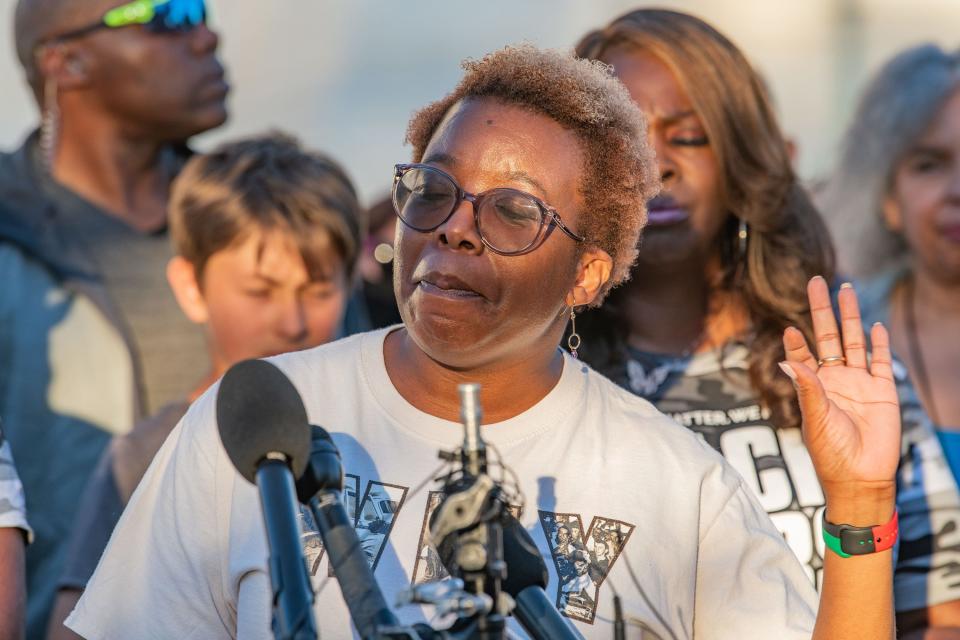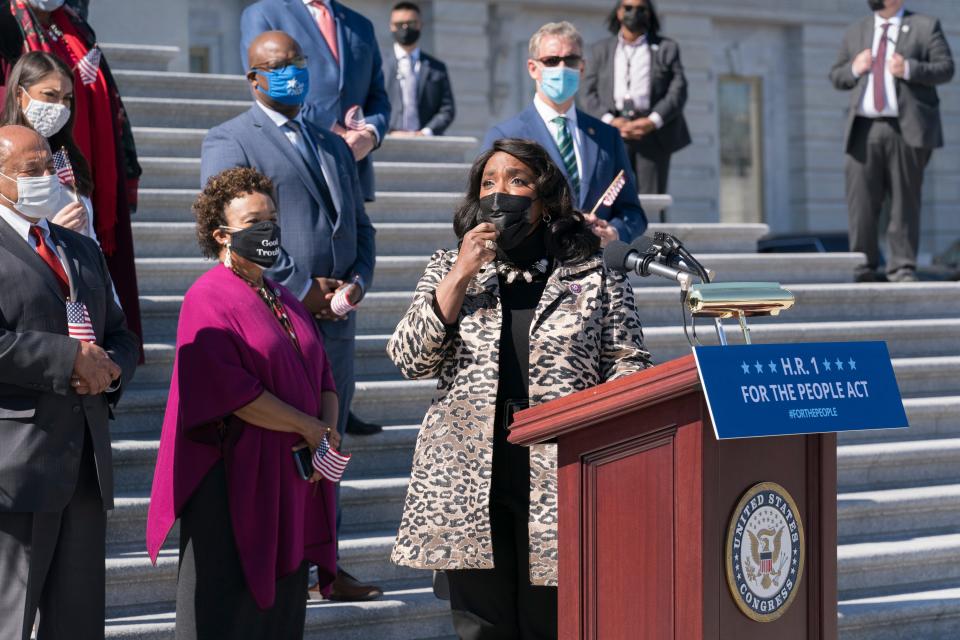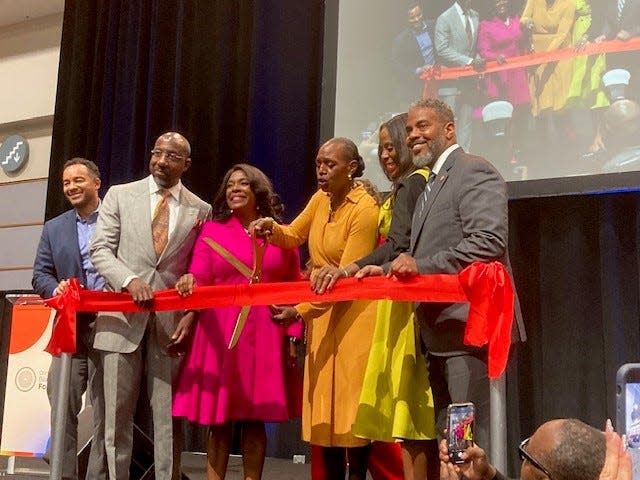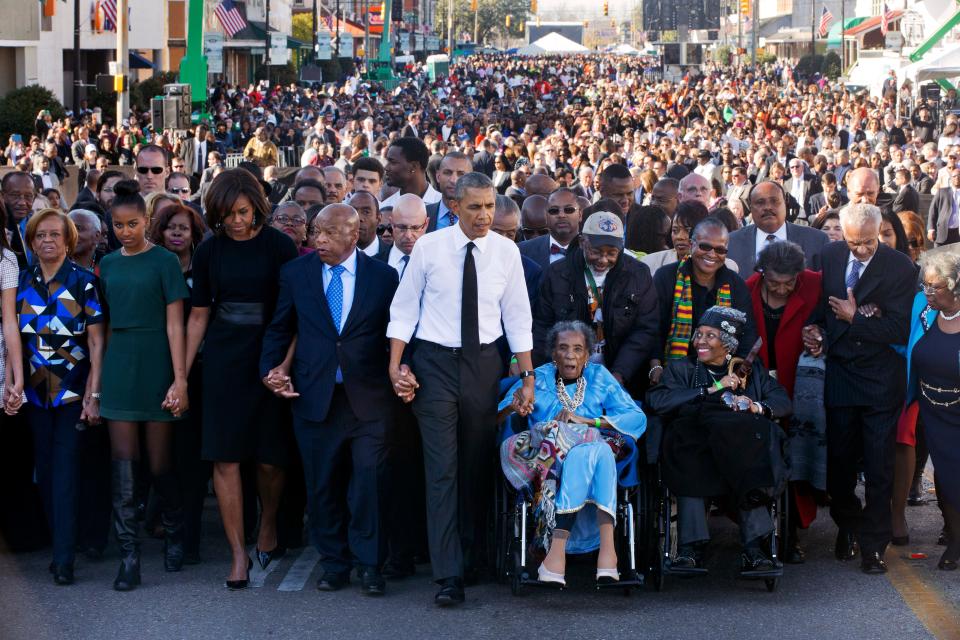Democrats want federal voting rights bill ahead of 2024 elections
- Oops!Something went wrong.Please try again later.
WASHINGTON _ Ahead of the 2024 elections, Democratic lawmakers vowed to challenge a wave of restrictive state election laws by holding rallies, launching voter registration drives and reintroducing federal voting legislation aimed at protecting voting rights.
‘’It's so important that we continue this fight,’’ Alabama Rep. Terri Sewell, a Democrat, told USA Today Wednesday. “Change rarely comes from the halls of Congress without grassroots mobilization and efforts to push it forward and so we're going to stay on task.’’
Sewell reintroduced the John Lewis Voting Rights Advancement Act Tuesday. The move comes 10 years after the U.S. Supreme Court gutted a key provision of the landmark 1965 Voting Rights Act. The legislation, among other things, would restore provisions in the Voting Rights Act requiring states with a history of voting discrimination to get federal approval before making election changes.

The measure named after the late civil rights icon Georgia Rep. John Lewis has repeatedly stalled in Congress, but supporters at this week’s Congressional Black Caucus Foundation’s legislative conference in Washington, D.C., pledged to again champion for its passage. The theme of the conference is “Securing our Democracy, Protecting our Freedoms, Uplifting our Culture.”
Sewell introduced the bill on National Voter Registration Day. “Only Congress can come up with a framework by which you determine which jurisdictions should have preclearance,’’ Sewell said. “So we need to do our job.’’
Some states have passed measures that would reduce early voting periods, limit the number of ballot boxes and require identification to vote. Black lawmakers have argued some of the new laws would make it harder to vote, particularly for people of color.
GOP say Democrats trying to grab power
Republicans, however, have argued Democrats are trying to take control of elections run by states and said the new laws help protect against fraud and other election irregularities.
Some Republican lawmakers have also said the preclearance provision is no longer needed and have noted that Black voter turnout in some places has reached record numbers.
At least 323 bills that make it harder to vote have been introduced in 45 states since 2020, according to the Brennan Center, a research organization tracking the laws. The center found that 11 states have passed at least 13 restrictive laws so far this year.

Marcia Johnson, co-director of the Lawyers’ Committee’s Voting Rights Project, said the Democratic-controlled Senate is the likely vehicle for this Congress to move the bill.
“What we need to have a drumbeat about is that the Voting Rights Act has always been a bipartisan bill,’’ Johnson said. “We shouldn’t allow that bipartisan legacy to be lost even in this climate because no one should be against fighting voting discrimination.’’
The Senate unanimously passed the reauthorization of the Voting Rights Act in 2006. But in 2013, the Supreme Court struck down the "preclearance'' provision in the law. Democratic efforts to restore the provision and pass other federal voting rights bill have failed.
“I don't know why our Republican friends are not coming to the table on this issue,’’ said Sewell, the lone Democrat in the Alabama congressional delegation. “Voting rights used to be very bipartisan.’’
Some election experts said chances of passage are slim and note that even when Democrats controlled both chambers the measure didn’t pass. So far only Democrats have signed on to the measure introduced Tuesday.
Voting rights bill faces uphill challenge

Johnson said it’s important the legislation is part of the political discourse and that it’s introduced each Congress.
“Every year that goes by it becomes increasingly more necessary,’’ she said, pointing to states including Georgia, which adopted laws that limit access to the polls after the 2020 election.
Over the years, civil rights and voting rights groups have held rallies and protests, including hunger strikes, to rally support for federal voting rights legislation. Voting rights groups praised Sewell for reintroducing the bill, calling it urgent and necessary.
“As long as I have breath in me and people from Alabama reelect me, every Congress I'll be introducing the John Robert Lewis Voting Rights Advancement Act to fully restore the protections of the Voting Rights Act of 65,’’ Sewell said.

This article originally appeared on USA TODAY: Voting rights for all? Democrats push for federal voting protections

